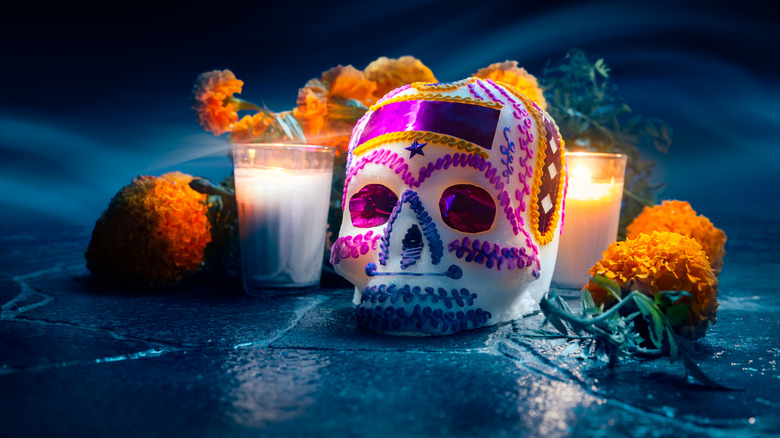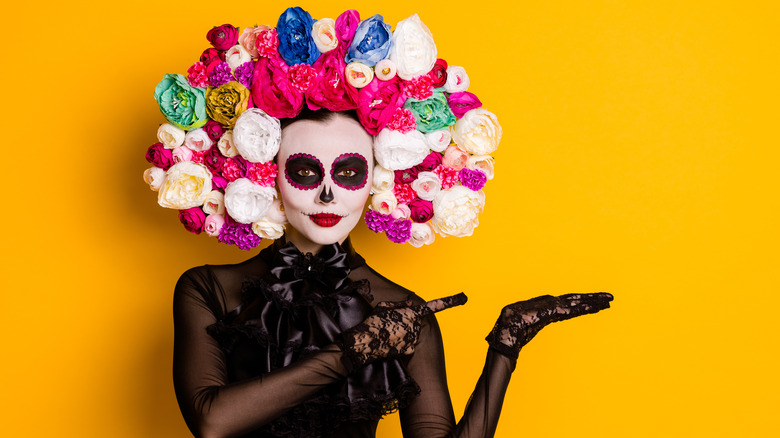Day Of The Dead Myths You Should Definitely Stop Believing
For centuries, the people of Mexico (even before Mexico was an official country) have been celebrating El Día de los Muertos, or "The Day of the Dead," as National Geographic explains. The holiday celebrates love and respect for departed family members, and as such, the living adorn themselves in regalia, often painting their faces to resemble skulls which, of course, represent death. In many ways, the holiday is an intensely spiritual one, with comforting offerings such as tamales, skulls made of sugar, and liquor being placed on altars and offered up to the dead, according to NPR News. Each offering and each ritual is rife with symbolism and meaning, both cultural and religious.
The Mexican celebration begins on November 1, just a day after October 31, which, in Mexico's neighbor to the north, is a huge holiday that similarly references the veil between life and death. This has given rise to a series of misconceptions that some Americans and other non-Mexicans have about the holiday.
The Day of the Dead is NOT the 'Mexican version of Halloween'
As Inside Mexico notes, the only things Halloween and the Day of the Dead have in common is that they take place at roughly the same time and that both holidays reference the barrier between life and death. That's where the similarities end. As for differences, they're legion: Day of the Dead is older, by centuries, dating back to 1,800 B.C. Halloween is, at least by this point, purely secular, while Day of the Dead is steeped in Catholic tradition and Aztec ritual. Halloween references ghosts, demons, and similarly "evil" manifestations of The Other Side, while Day of the Dead eschews all of that in favor of honoring the deceased. And while sweet treats play a role in the Mexican holiday, the purpose of the festival is not to acquire as much candy as possible but to honor deceased loved ones.
Further, at least one bit of Day-of-the-Dead-related-fiction became Day-of-the-Dead-related-fact, thanks to popular culture. As The Guardian notes, Mexico City never held a Day of the Dead parade; that is until a James Bond movie made it a thing. Specifically, 2015's "Spectre" featured a fictitious Day of the Dead parade in Mexico City as a plot point, and since it worked in the film, the city's leaders decided to go ahead and make it a reality — to mixed reviews.

